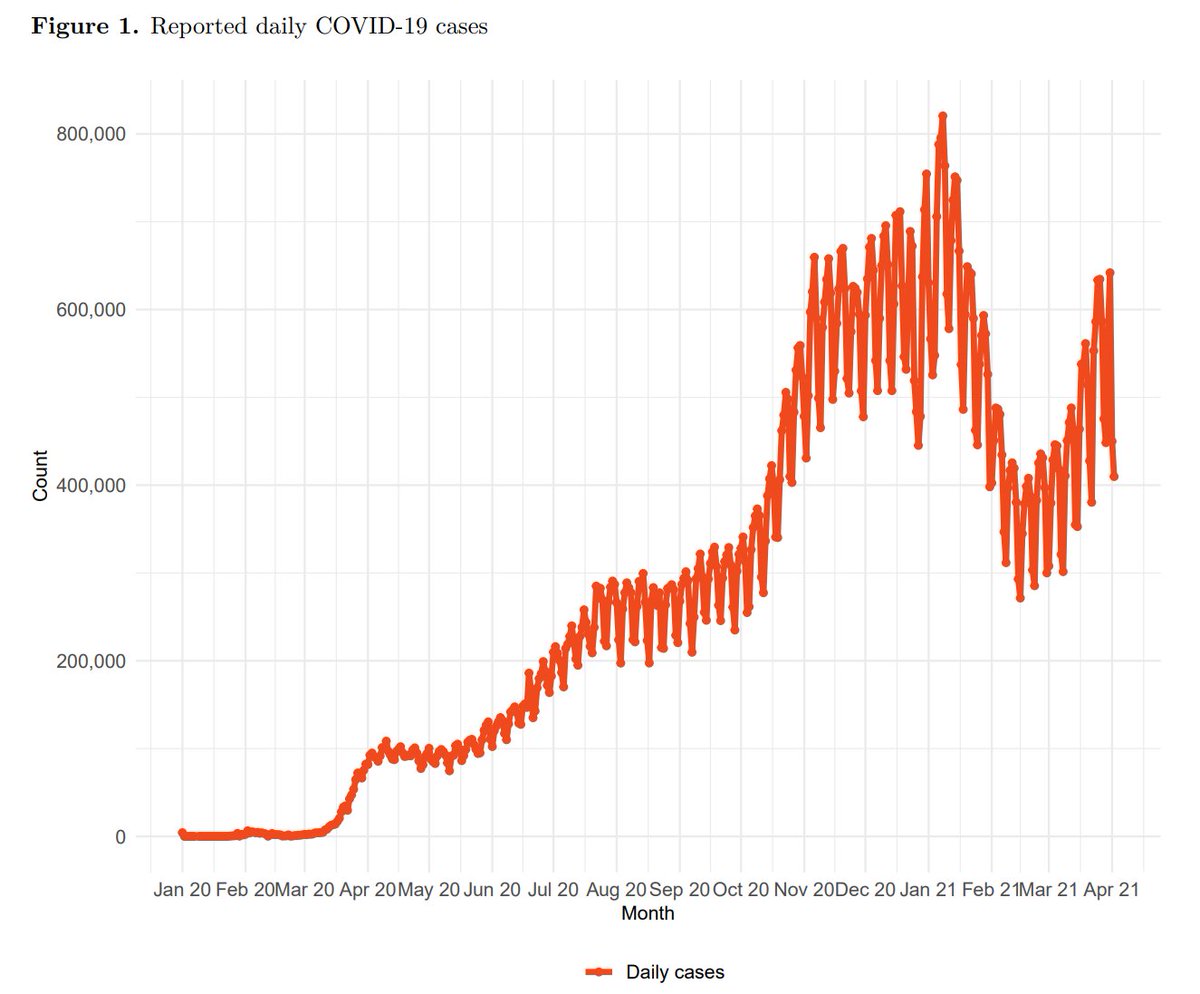
Global #COVID19 infections at this point have likely exceeded 15 million a day, marking the worst phase of the pandemic by a factor of three or more. 1/6 

The global daily reported #COVID19 cases in the last week increased to 726,300 per day on average compared to 641,000 the week before. This is a 13% increase over the last week. 2/6
covid19.healthdata.org/global?view=to…
covid19.healthdata.org/global?view=to…
The global daily COVID19 deaths in the last week increased to 14,400 per day on average compared to 13,200 the week before, a 9% increase. 3/6 

This makes #COVID19 the number 3 cause of death globally this week. 4/6 

Effective R, computed using cases, hospitalizations, and deaths, is greater than 1 in 93 countries. Transmission is increasing in many regions, but the increase is most intense in South Asia and parts of Southeast Asia. 5/6 

Efforts to increase preventive measures (increase mask wearing and decrease mobility and gatherings) must continue along with addressing vaccine hesitancy and expediting vaccination. 6/6 

• • •
Missing some Tweet in this thread? You can try to
force a refresh











